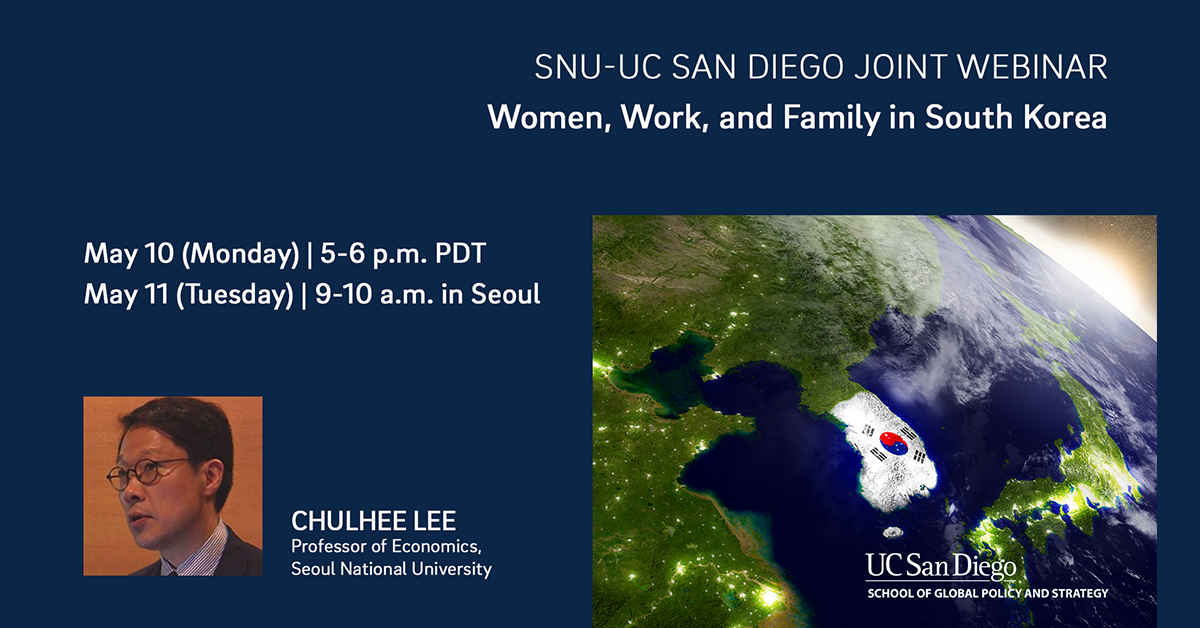May 10, 2021–May 10, 2021 from 5:00pm–6:00pm
Sectoral Shift, Technological Change, and Old Labor: Evidence from the U.S. and South Korea

This presentation provides evidence of how rapid changes in the industrial structure and production technology affect the employment and retirement of aged people, specifically, in the U.S. from 1880 to 1940 and in South Korea from 1960 to 2017. Both nations experienced radical economic and social changes during these periods. The U.S. transformed from an agrarian society into the world’s strongest industrial power as the Second Industrial Revolution occurred and matured. Similarly, South Korea transformed from a poor country recovering from a devastating war into one of the fastest-growing economies in the late 20th century. Therefore, these two historical cases from opposite sides of the globe and during different time periods may offer useful insights into the effects of rapid and radical economic changes on aged labor.
Chulee Lee is a professor of economics at Seoul National University. After receiving his doctoral degree from University of Chicago in 1996, he taught at SUNY Binghamton before he returned to Seoul in 1998. His major research topics are economic status and labor-market behaviors of older persons; interactions of ecological environment, socioeconomic status and health over the life course; and various demographic issues in Korea.
-------------------------------------
Korea-Pacific Program Webinar Series:
This webinar series is designed to showcase new research as well as a forum for discussion of major policy issues. This series has received generous support from the Korea Foundation and the National Research Foundation of Korea (NRF-2020S1A3A2A02104190).
Date and Time
May 10, 2021–May 10, 2021
from 5:00pm–6:00pm
Location
Online Webinar
Event Registration
Registration for this event is required.
Visit the registration page for details.
Event Fee
Free
Contact
Curtis Bruno • c1bruno@ucsd.edu
Audience
Faculty, Staff, Students, The General Public
Event Host
Korea Pacific Program @ School of Global Policy and Strategy